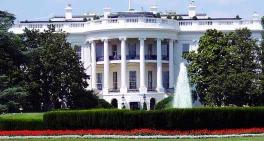LSU law school boosts scholarships
Breaking Legal News
As the number of law school applicants decreases in Louisiana and nationwide, LSU is upping the ante on its scholarships for law students to keep the “best and brightest” in Louisiana.
The LSU Board of Supervisors approved increasing the LSU Paul M. Hebert Law Center’s scholarship dollars more than 40 percent to about $1 million for the coming school year during board meetings this week at LSU-Shreveport.
The increase is part of the law center’s new “Louisiana Distinguished Public Service Scholars” program that will ultimately be funded by LSU tuition and fee increases, although the tuition proposals are still pending, LSU Law Center Chancellor Jack Weiss said.
With about 570 law students at LSU, Weiss said this new program is necessary “to maintain our current student demographics, much less enhance them, which is my goal.”
The new scholarship money is intended for the best in-state applicants who show an interest in legal public service, which is meant to coincide with LSU’s burgeoning clinical legal education program, according to the scholarship proposal.
Not only is more clinical education being demanded for continued American Bar Association law school accreditation, but it provides students with more real-life legal experience with clients apart from standard internships.
Although more money will be awarded to students, Weiss said LSU may not need to use the full $1.03 million scholarship allotment approved by the LSU board.
As for tuition, Weiss said, “We’re being limited by the budget we currently have.
“To put it bluntly, we cannot do what we need to do &hellip without a tuition increase,” Weiss said, noting that LSU’s tuition is below its peers.
Quoting LSU System President John Lombardi, Weiss added, “Money matters.”
Mike Gargano, LSU System vice president of student and academic support, called the plan a “significant” and necessary increase for scholarship funding.
Nationally, the number of law school applicants decreased from nearly 97,000 in 2003 to just 80,000 last year, Gargano said.
At LSU, law school applications dropped from 1,845 in 2003 to 1,299 last year, he said. Then there is the issue of Louisiana’s decreasing population.
With fewer students to choose from, Gargano said “the competition for students becomes that much more fierce.”
The scholarship adjustment is needed “to better confront these national dynamics,” he said.
Weiss also announced the hiring of Indiana University clinical law professor Robert Lancaster as the new director of LSU’s clinical legal education program.
Lancaster is a 1993 Tulane Law School graduate.
Related listings
-
Tunisian trial shines light on use of military courts
Breaking Legal News 11/24/2021A few days after Tunisia’s president froze parliament and took on sweeping powers in July, a dozen men in unmarked vehicles and civilian clothes barged into politician Yassine Ayari’s family home overnight and took him away in his pajamas...
-
Video: Officer shoots Illinois inmate after struggle for gun
Breaking Legal News 11/01/2021Illinois State Police have released video footage showing a tense scene involving an inmate’s attack on a correctional officer at a courthouse and another officer firing his weapon at the inmate and injuring him. Authorities said 55-year-old Fr...
-
Maryland’s highest court reviewing teen sniper’s life term
Breaking Legal News 08/27/2021Maryland’s highest court has agreed to take up the case of Lee Boyd Malvo, who is serving life in prison for his role in the 2002 sniper spree that terrorized the Washington, D.C., region. Malvo’s lawyers argue that his punishment goes ag...

USCIS to Continue Implementing New Policy Memorandum on Notices to Appear
U.S. Citizenship and Immigration Services (USCIS) is continuing to implement the June 28, 2018, Policy Memorandum (PM), Updated Guidance for the Referral of Cases and Issuance of Notices to Appear (NTAs) in Cases Involving Inadmissible and Deportable Aliens (PDF, 140 KB).
USCIS may issue NTAs as described below based on denials of I-914/I-914A, Application for T Nonimmigrant Status; I-918/I-918A, Petition for U Nonimmigrant Status; I-360, Petition for Amerasian, Widow(er), or Special Immigrant (Violence Against Women Act self-petitions and Special Immigrant Juvenile Status petitions); I-730, Refugee/Asylee Relative Petitions when the beneficiary is present in the US; I-929, Petition for Qualifying Family Member of a U-1 Nonimmigrant; and I-485 Application to Register Permanent Residence or Adjust Status (with the underlying form types listed above).
If applicants, beneficiaries, or self-petitioners who are denied are no longer in a period of authorized stay and do not depart the United States, USCIS may issue an NTA. USCIS will continue to send denial letters for these applications and petitions to ensure adequate notice regarding period of authorized stay, checking travel compliance, or validating departure from the United States.




